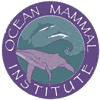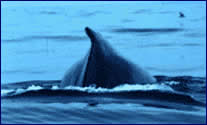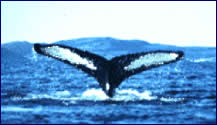



 |
 |
|
  |
||
About OMI The Ocean Mammal Institute (OMI), formally established in 1994, is a non-profit organization designed to assist in narrowing the gap between individuals, science and technology, and to increase heartfelt connections with the natural world. As Rachel Carson observed, “You must love nature before you can preserve it.” President and Founder
Since 1986, Dr. Green has been conducting research on the impact of human behavior on humpback whales and spinner dolphins in Hawaii. She has gained international recognition for her ground breaking studies linking human compassion with scientific field research to benefit whales, dolphins and their environment. Dr. Green is a woman who believes words can educate
but its actions that create a change. She has taken specific actions that
have been instrumental in changing laws and conditions for marine mammals:
The IONC is a partnership of over 140 non-governmental organizations (NGOs) from around the world. It was created to address the need for a global approach to combating human-generated ocean noise. As driven as she is to take a stand for what she believes
in to protect our environment and its inhabitants. She is also able to
connect to and learn from the whales she studies as she shares:
She believes that if we really want to work on preserving and protecting this planet and all life forms, we have to heal ourselves by getting our hearts and minds reconnected. As we rediscover our deep connection to the Earth we will naturally stop polluting the environment and overusing resources. Dr. Green exposes her students to these concepts through the OMI Research Internships. These approximately three week sessions conducted in Hawaii teach students how to conduct responsible field research and how they can get involved in important conservation issues. She teaches them how to use science to protect nature. To read more about her thoughts on the power of connecting to nature read Dr. Greens talk, "Our Healing Relationship with Nature." |
What We Stand For Science Protecting Nature
|
|
| Certainly the integral link between the health of our planet, our environment and our personal well-being is well accepted. Theodore Rozak, a prominent ecopsychologist, highlights the importance of our awareness of our connection to nature in his recent book, Voice of the Earth. He argues that healing ourselves and healing the planet go together, are synchronistic. We at the Ocean Mammal Institute are dedicated to resolving the current ecological imbalance. We do this by providing individuals with opportunities to feel their intimate connection with nature in order to awaken people's commitment and courage to act for our planet and its inhabitants. Our intent is to facilitate healing the human/nature separation and the scientific/spirituality interface. | |
Why Whales and Dolphins |
|
| No one has said it better than Frank Stewart in his book, The Presence of Whales. "Whales have become a popular symbol of the catastrophic effect human activities are having on global diversity. If we can destroy such remarkable marine mammals-beasts that do not compete with us for living space….who are not threats to us in any way….then nothing is safe from our destructive impulse. That we have such a symbol, and that it has the power to change our hearts and compel us to do better, should encourage us to hope that we can undo some of the damage of the past. Once whales have enthralled a person's imagination, the effect is long-lasting ". And this is true for the Ocean Mammal Institute. | |
Our Objectives |
|
Our objectives are to change people's awareness,
help them feel their connection to the natural world, and to protect ocean
mammals. We believe efforts to protect a specific species are an effective
way to address the abstract issues of biodiversity and ecosystem protection.
Consequently our programs have three goals:
By doing research to protect the whales and dolphins, people learn they can help preserve biodiversity. If our programs are successful, people will think more carefully about decisions that may result in polluting the environment and will be empowered to act responsibly. |
|
How We Accomplish These Objectives |
|
We publish and lecture about the results of our research and about pressing marine conservation issues in order to encourage people to get involved. We offer a research internship in Maui each January to teach field research techniques on humpback whales and discusss the marine environment. For approximately three weeks, interns work with in the field collecting data. In this way, they are given an opportunity to directly observe the impact of humans on whale and dolphin behavior and habitat. Interns gain not only an understanding of how to apply the scientific method to protect the environment and its inhabitants, but also a deep appreciation of the delicate relationship between humans and nature. Over 360 students have completed this course, most receiving college credit for this course. Graduate thesis supervision is also offered. |
 |